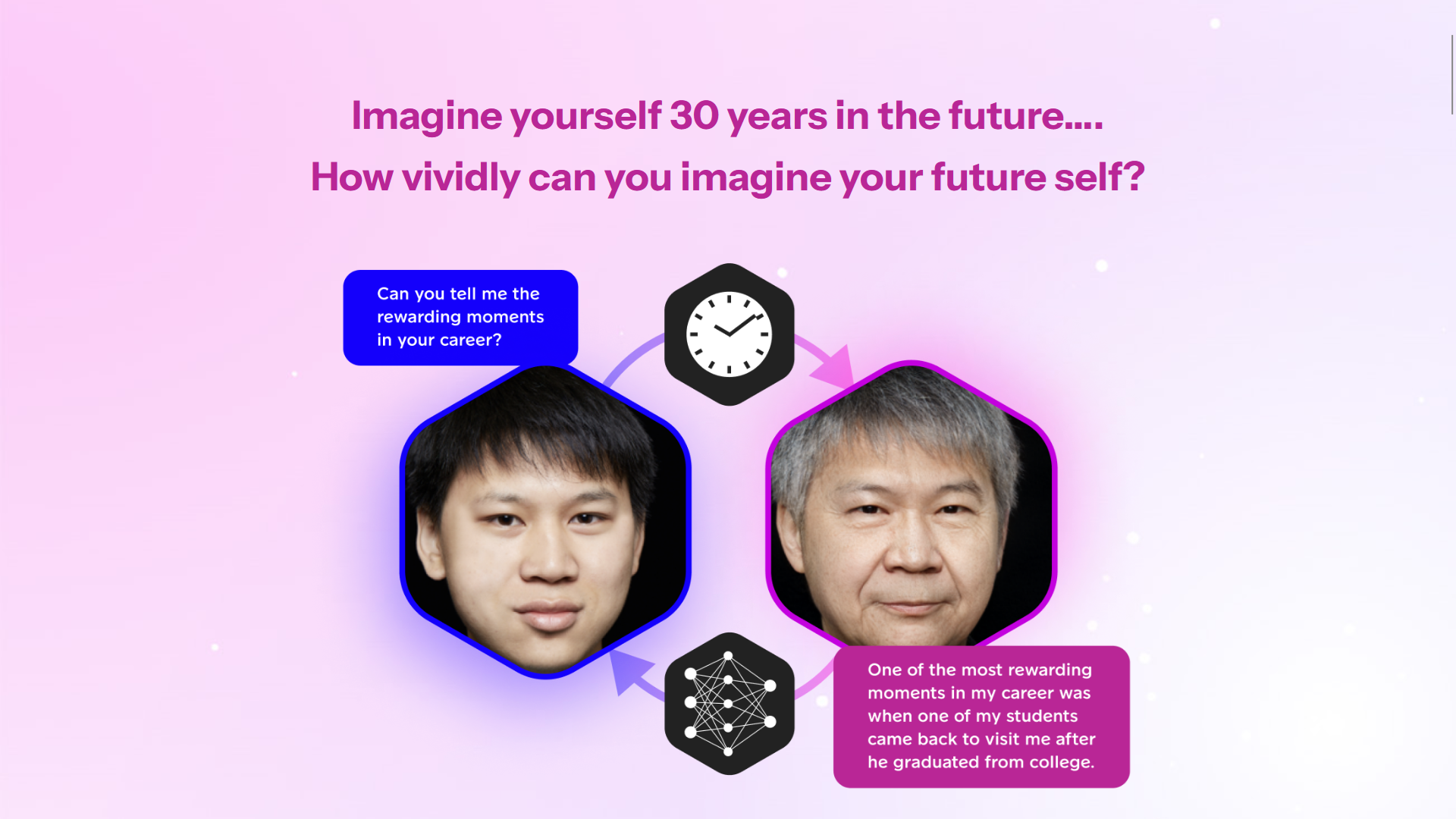Imagining what you’ll be like in the future is a common game for kids, full of the sometimes unlikely hopes and fears we all feel when contemplating what’s yet to come. Researchers at the Massachusetts Institute of Technology (MIT) have leveraged AI to make that concept a little more realistic through the new Future You project. The AI-powered chatbot simulates your older self, specifically a version from 30 years in the future.
MIT’s Media Lab built Future You with the of idea encouraging thoughtful introspection about who you are, who you want to be, and how to develop and pursue long-range goals. With some digital aging technology, you can even see how you (potentially) will look decades from now.
“Our system allows users to chat with a relatable yet AI-powered virtual version of their future selves that is tuned to their future goals and persona qualities,” the scientists explain in the abstract for their research paper on Future You. “The “Future You” character also adopts the persona of an age-progressed image of the user’s present self.”
To try out Future You, you just run through the initial setup, answering questions about your current life. That includes relationships, professional situations, goals, and your history up to now. It might seem personal, but the more information the AI has about who you are now, the better it can project who you might become. Once the survey is done, the AI builds a profile of your future self and links it to a customized version of OpenAI ’s GPT-3.5 AI model. You also have the option of uploading a current photo of yourself that the AI will then make look 30 years older.
When you talk to that persona, you’ll find it has a synthetic memory of the last 30 years. That way, it can talk to you about what led it to become the (projected, fictional) version of yourself. That might mean reaching the career goals you’ve mentioned or your dreams of family life. The AI won’t just say that those goals have been achieved, but will have a whole timeline explaining how it reached that point. The result should be far from generic, and the AI should be able to perform as a convincing potential version of your future self.
Future AI Self
The idea of interacting with a digital doppelganger from the future at first seems like nothing more than a game of what if, and one without any real value beyond entertainment. However, those who have tried out Future You have reported feeling like they have new insight into their lives and more motivation to pursue current goals. In fact, even a short interaction with their ‘future’ self has users saying they feel less anxiety about the future as a whole.
The point is to make the future seem more real. The MIT researchers believe that even though the AI simulation is very clearly not predicting anyone’s real future, it can make the future seem more real, shortening the psychological distance you might feel toward that future self and encouraging better decision-making because you can now envision how your choices now affect who you will become.
Future You is still experimental, but its effect on people is encouraging. Making the future real with deliberately synthetic versions of someone is not the most obvious deployment of AI models, but, according to my own future self, it’s a great start toward better choices and will make sure I never go bald.
You Might Also Like





















+ There are no comments
Add yours